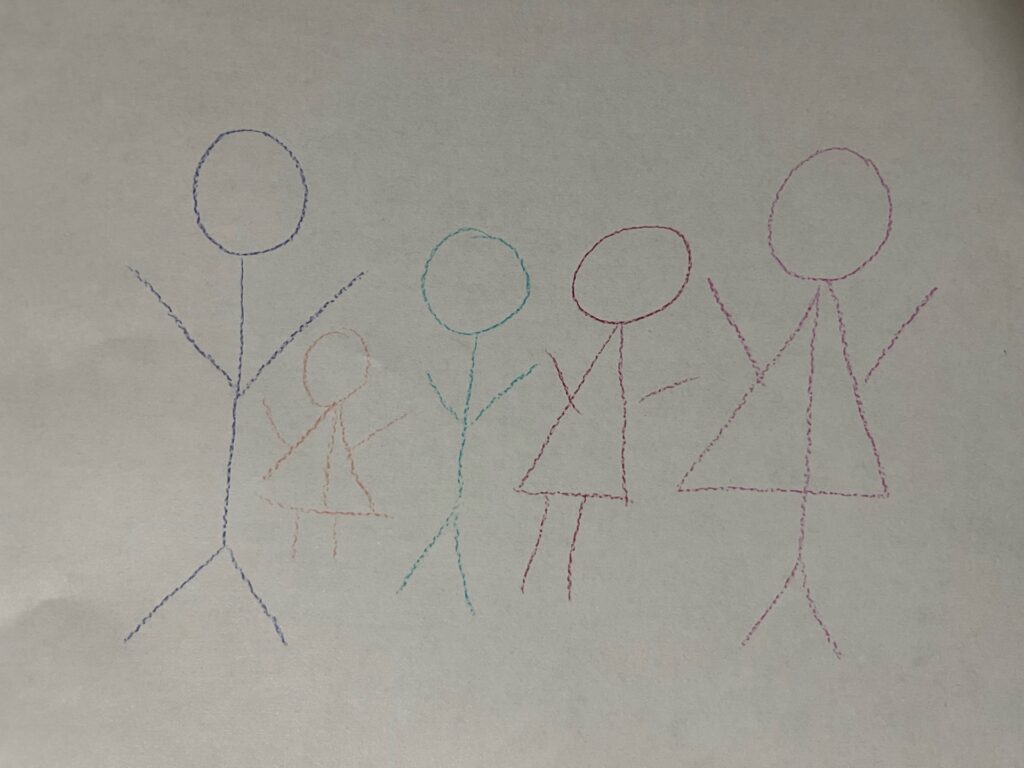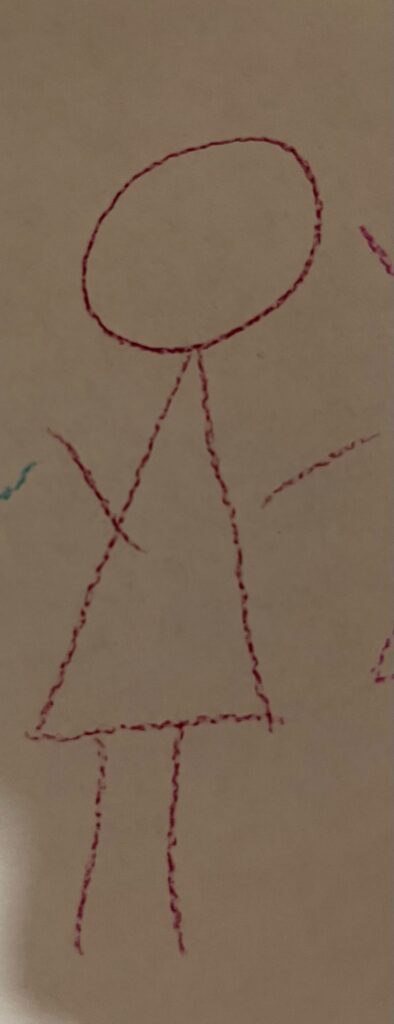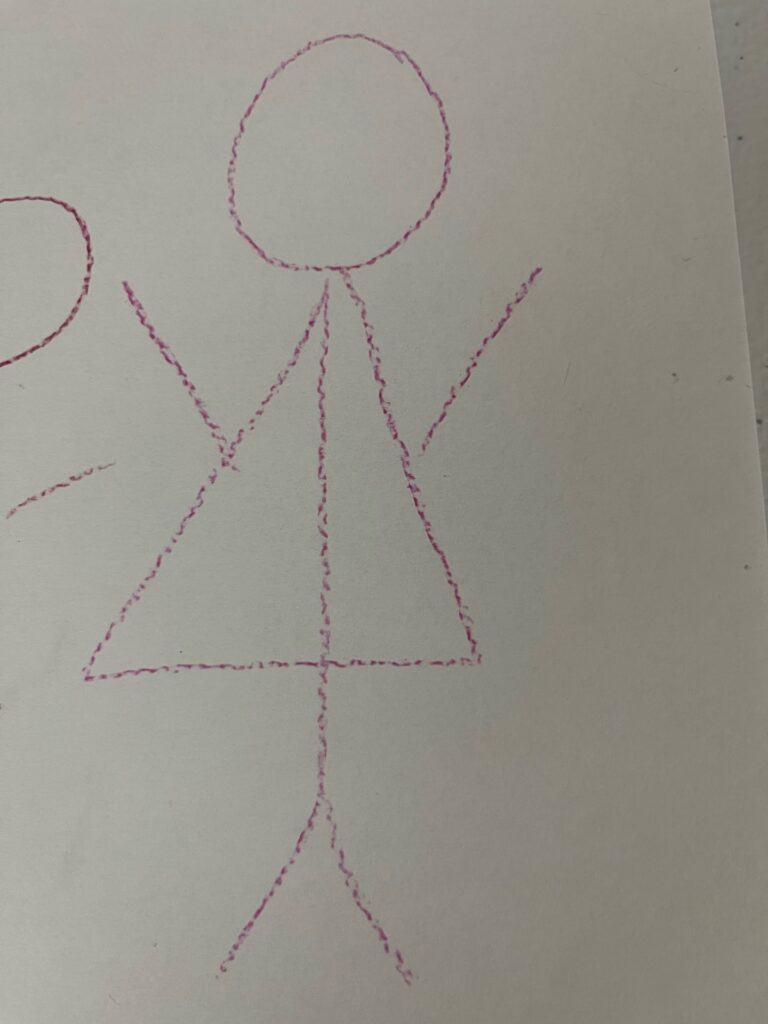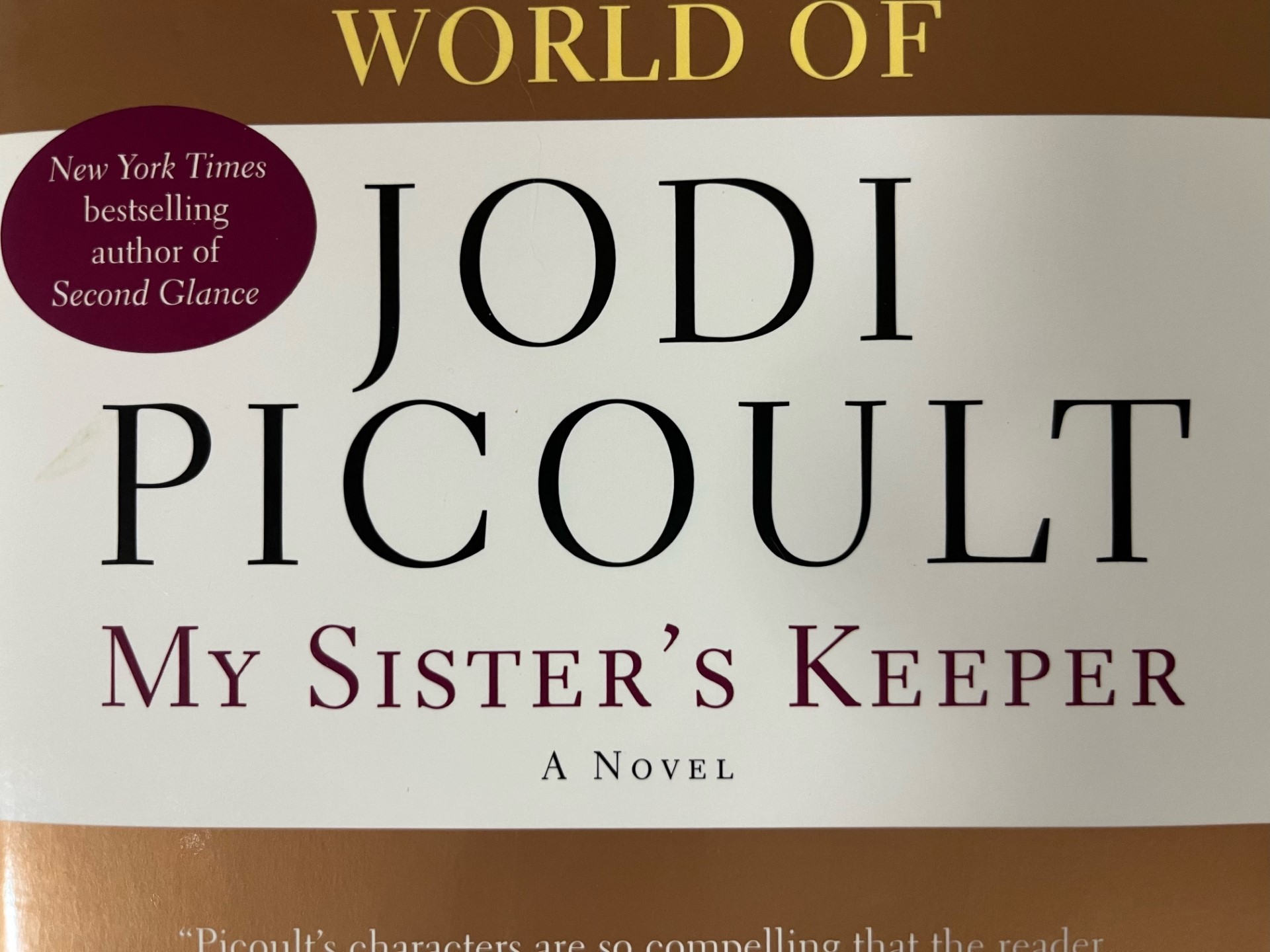One of the most emotionally complex and revealing about human nature books I have ever read is My Sister’s Keeper by Jodi Picoult. This story highlights the Fitzgerald family. Originally a family comprised of two children, a girl named Kate and a boy named Jesse, they are torn apart when they find out that Kate has leukemia. As she gets sicker and sicker, they find out she needs a blood donation from someone who matches her DNA, but none of them match. They decide to have another child, essentially designed by the doctors to match her DNA.

This is how Anna is born. Literally from the moment of her birth until when our story takes place, every time Kate needs a tissue donation or blood cells or organs, Anna is the one to donate, per her parent’s wish. She goes through several painful and dangerous ordeals to save her sister. It is her purpose. But when her sister needs a kidney transplant and her mother decides she will be the one to donate, Anna decides she is finished. She decides to medically emancipate from her parents. This is a complicated and heavily buried situation. I would like to explore it from each family member’s perspective to give us a better understanding of the heavy circumstances.
Kate: The Cancer Patient
We all know the stereotype. The kid in the family who is sick. They are fawned over, and surrounded constantly by helpers. Their parents feel guilty or horrible for the fact that they have to go through so much bodily trauma and overwhelm them with gifts of ice cream and quality time. Their every need is catered to, whether related to their sickness or not. Some bratty kids may enjoy this treatment, but often the kid starts to feel smothered. They say that they just wish their parent would get on to them for that thing they did or give them some alone time after a bad episode of sickness.

Kate has been sick almost her entire life. She is used to the constant attention and babying. But getting a lot more toys than you need is one thing. Getting your sister’s organs and tissue, against her will, is another thing. Kate is done with this process. She does not want her sister to go through painful and dangerous operations to give her things that probably will not save her long-term anymore. She is ready to die without so much of a fuss.
The fact that the person in danger is against this kidney transplant is both ironic and speaks to the character she possesses. She can see more than her selfish wants and needs. This is more than it appears her parents can see. This situation speaks to many situations we see in real life. Very often, the people most concerned or unhappy about a human rights issue are not directly involved in the situation. This can cloud their judgment.
The Mom: The Helicopter Parent
Sarah Fitzgerald has lived her life with one goal and one goal alone. She is determined to protect, care for, and keep alive her oldest daughter. From the very beginning when she finds out that her child has cancer, her every nerve and fiber is focused on removing this threat from Kate’s life. This is how it is supposed to be. The wife is supposed to prioritize her children and husband’s rights and happiness over all others. This is a concept C. S. Lewis explains carefully. It is why women are not the head of household but the caretaker of the family.
However, this model can become extremely twisted. Sara has focused so much on one of her children’s issues that she has become completely blind to the needs of her other two children. This is why Jesse goes off the rails. This is why she is willing to do anything necessary to Anna to save Kate. She can remove a kidney from one child without blinking an eye because it has the potential to save the other child. She has become so desperate that she can only be defined and make decisions under the influence of her trial.

The Dad: The Mediator
Brian Fitzgerald fits C. S. Lewis’s explanation of the father of a family. He can see the outside world and its needs. He mediates between the wife who is for her family and everyone else, who may not have a care in the world about their family. Because of this, he is naturally more open-eyed about the situation their family is in. Of course, he is heartbroken about the state they have slowly come to. But he can keep clear-headed and realize that not everything they do can be for Kate.
He is stuck in a very difficult position. He sympathizes with Anna and seems to rather agree with her. However, he is not willing to ostracize his wife by flat-out disagreeing with her. Worn down by the emotionally challenging existence of having to choose one child and their health over the other, he flees to his firehouse to get some peace from the situation. He cannot stand up for any one side without causing the other to crumble. Just like his wife, he is stuck between two girls he loves. Unlike her, he is unable to make a choice.
Jesse: The Forgotten Brother
Jesse was alive before his older sister got sick. He had in the very beginning a very normal childhood. However, as soon as cancer hit their family and his younger sister was born, he was forgotten. It is a classic middle child syndrome with a very dark twist. He naturally loves both his sisters, but this is clouded with feelings of abandonment and jealousy. He has sought attention throughout his young life, typically in dramatic ways. But these attempts have only brought him pain or punishment.

Because of this, he has gone to drinking and arson to distract himself. He lives in the garage and the family has learned not to bother him there. His illegal pursuits bring him both distraction and a sense of satisfaction. It is like proving to himself that the abandonment he feels is justified. Even illegal activity will not bring his mother to so much as look at him. The arson in particular shows the complex of emotions he feels. As his dad serves as an active firefighter, this is a direct act of anger and discontentment towards his parents.
Anna: The Servant Sister
Anna, being the protagonist of the story, has, not surprisingly, the most complex makeup of any of the Fitzgeralds. She has been, quite literally, bred to serve her sister. As a young child, she did not quite understand the significance of this. But now that she is older, the double meanings of many of the events of her childhood are starting to be revealed to her. She sees lies and deceit in every bedtime story or Christmas gift. Some of these events have become exaggerated in her mind, but there are some hard truths to these memories.
She loves her sister. She and Kate have been very close since she was born. They have shared rooms, interests, and conversations. However, Kate has gotten all of the attention and care throughout her life. She is the center of everyone else’s universe. Anna has gone through several operations through the years to give Kate the things she needs in hopes of making her better. She has saved her life time and time again. But not a single one of these operations has been truly Anna’s choice. She has been afraid of the pain and recoveries she has undergone every single time, many of which she was far too young to understand.
Anna does not want her sister to die. She has been defined by her sister her entire life. If she loses her, she loses a part of herself. But she does not want to live her life as a medical slave, going from one surgery to the next. This is what makes her choice and emotional pain so hard. But she cannot just donate a kidney. It is too far for her, and she is tired of facing these battles time and time again. She decides to take the stand that no one else in her family has been able to take. She is young and very very brave.
My Sister’s Keeper packs some of the deepest, strongest human emotions into one story. It tells us that there is no such thing as a free lunch. Sometimes there is not a perfect choice. We have to choose what is the lesser of two evils, and sometimes that feels impossible. We are asked to choose between people we love, values we uphold, or rights we believe in. “There are always sides. There is always a winner and a loser. For every person who gets, there’s someone who must give.” What would you choose?
